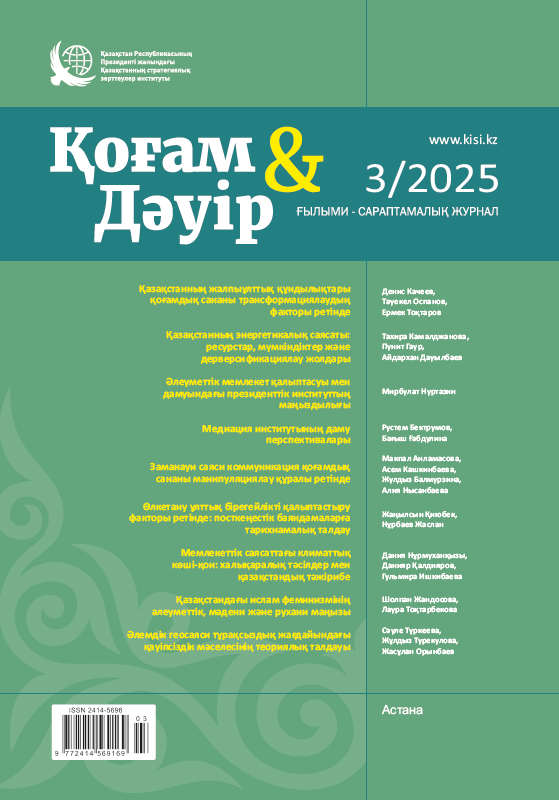Abstract
Climate change is one of the key global challenges of the 21st century, significantly affecting socio-economic processes and requiring adaptation of public policy. The intensification of climate-related factors increasingly shapes migration flows; however, at the international level there is still no unified legal status for climate migrants, which leads to legal uncertainty. According to the 1951 Refugee Convention, climate migrants are not considered refugees, and existing mechanisms do not provide them with adequate legal protection. In Kazakhstan, with its diverse climatic conditions and the vulnerability of certain regions, the risk of both internal and cross-border climate migration is growing. This situation necessitates the integration of climate migration issues into national migration and climate policies, as well as the adaptation of legislation to new challenges. The study aims to analyze international approaches to regulating climate migration, identify gaps in the legal framework, and outline possible solutions for Kazakhstan. The main objective is to develop proposals for improving public policy and the national legal system, taking into account global experience and current trends.


